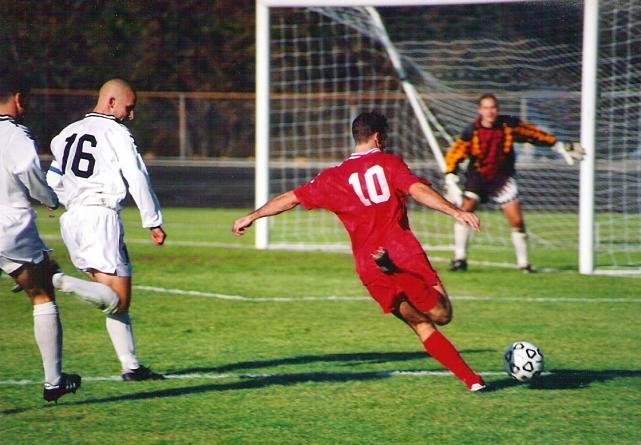 N Engl J Med
N Engl J Med
January 31, 2008; 358:475-483
DOI: 10.1056/NEJMoa0707427
Ute Wilbert-Lampen, M.D., David Leistner, M.D., Sonja Greven, M.S., Tilmann Pohl, M.D., Sebastian Sper, Christoph Völker, Denise Güthlin, Andrea Plasse, Andreas Knez, M.D., Helmut Küchenhoff, Ph.D., and Gerhard Steinbeck, M.D.
Medizinische Klinik und Poliklinik I, Campus Grosshadern, Germany
BACKGROUND:
Events that induce environmental stress in a large number of people in defined areas — such as earthquakes, war, and sporting events — may increase the risk of cardiovascular events. Reports of the association between soccer matches and rates of illness or death from cardiac causes have been controversial.
The Fédération Internationale de Football Association (FIFA) World Cup, held in Germany from June 9 to July 9, 2006, provided an opportunity to examine the relation between emotional stress and the incidence of cardiovascular events.
METHODS:
Cardiovascular events occurring in patients in the greater Munich area were prospectively assessed by emergency physicians during the World Cup. We compared those events with events that occurred during the control period: May 1 to June 8 and July 10 to July 31, 2006, and May 1 to July 31 in 2003 and 2005.
RESULTS:
Acute cardiovascular events were assessed in 4279 patients. On days of matches involving the German team, the incidence of cardiac emergencies was 2.66 times that during the control period (95% confidence interval [CI], 2.33 to 3.04; P<0.001); for men, the incidence was 3.26 times that during the control period (95% CI, 2.78 to 3.84; P<0.001), and for women, it was 1.82 times that during the control period (95% CI, 1.44 to 2.31; P<0.001). Among patients with coronary events on days when the German team played, the proportion with known coronary heart disease was 47.0%, as compared with 29.1% of patients with events during the control period. On those days, the highest average incidence of events was observed during the first 2 hours after the beginning of each match. A subanalysis of serious events during that period, as compared with the control period, showed an increase in the incidence of myocardial infarction with ST-segment elevation by a factor of 2.49 (95% CI, 1.47 to 4.23), of myocardial infarction without ST-segment elevation or unstable angina by a factor of 2.61 (95% CI, 2.22 to 3.08), and of cardiac arrhythmia causing major symptoms by a factor of 3.07 (95% CI, 2.32 to 4.06) (P<0.001 for all comparisons).
CONCLUSIONS:
Viewing a stressful soccer match more than doubles the risk of an acute cardiovascular event. In view of this excess risk, particularly in men with known coronary heart disease, preventive measures are urgently needed.
http://www.nejm.org/doi/full/10.1056/NEJMoa0707427
Thursday, 31 January 2008
Cardiovascular Events during World Cup Soccer






Subscribe to:
Post Comments (Atom)
No comments:
Post a Comment
spammers will be dissolved in H2SO4